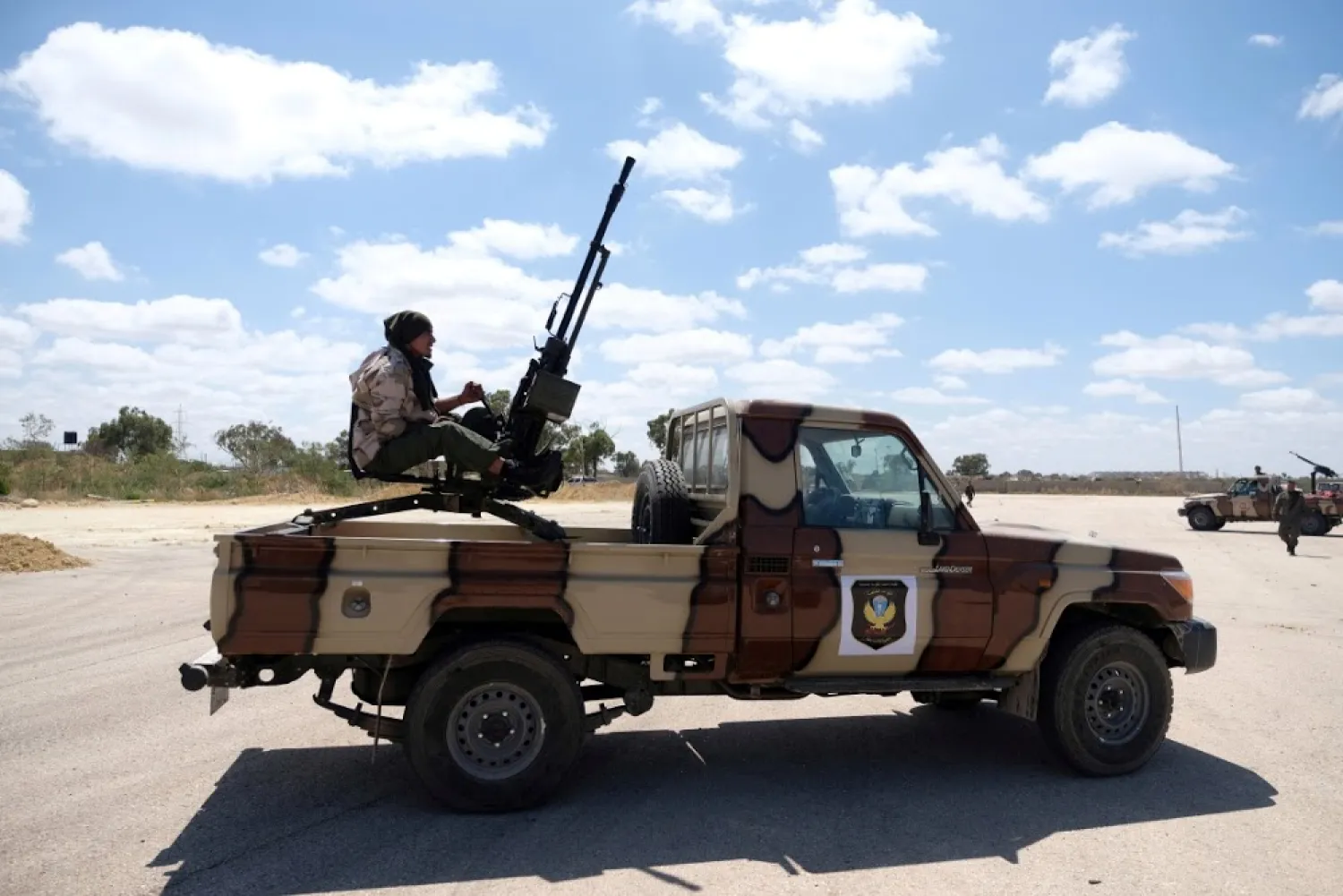The Libyan National Army (LNA) has boosted its forces on battlefronts on the southern outskirts of the Libyan capital, Tripoli.
Its fighter jets carried out strikes Thursday against militia positions on various fronts, including Gharyan near the capital. They also struck arms depots and a hangar in Misrata city.
Volcano of Rage operation, launched by head of the Government of National Accord, said it has forced 17 LNA soldiers to surrender with their weapons and vehicles, in al-Khula, south of Tripoli.
Yousef al-Amin, a pro-GNA commander in the Ain Zara area, said that “new positions were seized on Friday,” stressing that LNA forces “showed no significant resistance.”
However, a senior LNA military official denied the claim. He told Asharq al-Awsat that the troops are still stationed there despite ongoing attempts by militias to force them to retreat or abandon their positions.
Meanwhile, GNA chief Fayez al-Sarraj announced that his forces will continue to defend the capital.
In a statement issued by his media office, he denied that he had made a call to resume dialogue with LNA commander Khalifa Haftar or for ending the Tripoli battle.
Sources close to the LNA, refuted these claims, saying that Haftar had rejected western efforts to hold a new round of dialogue with Sarraj.
They told Asharq Al-Awsat that the losses suffered by pro-Sarraj militias in the battles waged by the LNA to liberate Tripoli have put huge pressure on Sarraj and his government in confronting these militias, which accuse him of failing to convince the international community to exert more efforts to stop the fighting.
GNA Interior Minister Fathi Bashagha, meanwhile, said the political solution or returning to dialogue were not possible without the LNA withdrawal.
“We will continue our battle to defend the capital and will provide unlimited support to officers and military commanders until the rival forces are defeated,” he said in televised remarks on Friday.
On Thursday, the United Nations Support Mission in Libya (UNSMIL) said that it has strived since the eruption of the conflict to return the warring parties to the negotiating table and end the unrest, read a statement by the GNA, quoting Deputy Special Representative for Political Affairs in Libya Stephanie Williams during a meeting with Sarraj’s deputy, Abdulsdalam Kajman.
“But Haftar’s intransigence and his rejection of the solutions offered by the UNSMIL has prevented this step to take place,” she added.
She pointed out, however, to the continued efforts by the UN mission to reach out to the international community and put an end to this war as soon as possible.
According to the statement, Kajman slammed the UNSMIL’s performance and the weak support for the implementation of the political agreement and holding those obstructing it accountable.
He also criticized the UNSMIL’s failure to object to the military violations committed by the LNA over the years, especially during its ongoing war on Tripoli.
The next phase in Libya must be kicked off by a comprehensive national reconciliation and preparing for dialogue involving all Libyans, without Haftar, to ultimately hold a referendum on the constitution and stage presidential and parliamentary elections, Kajman proposed.









